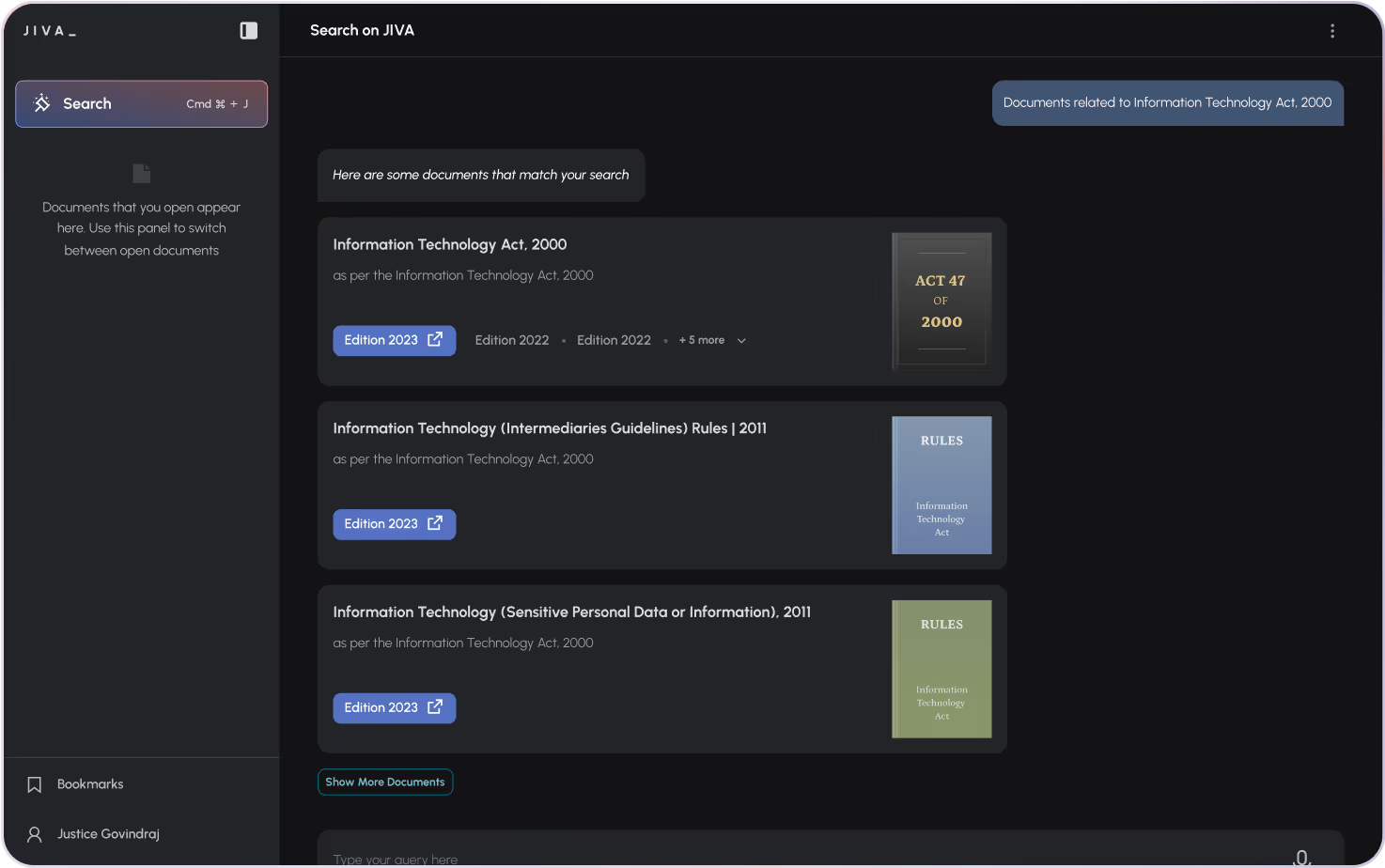
Making the Indian Judiciary
More Efficient with AI
Agami isn't a typical non-profit organization. It is building an ecosystem to find creative solutions to identify and solve legal problems and make a real impact on the justice system in India.

What is JIVA?
In the current system, Lawyers and advocates cite applicable Acts and Laws to support their arguments. Judges then depend on the court clerks to find all documents related to the cited acts and laws, which can take weeks or, in some cases, even months.
JIVA allows the judges to find any law-related documentusing AI in seconds rather than weeks.
Before JIVA
With JIVA
Immersing ourselves deep into the judiciary
To understand how the lack of quick access to documents affects court hearings, we had to deeply immerse ourselves in the judiciary. We interviewed dozens of judges from all levels of the judiciary and analysed hundreds of recorded court cases. This helped us identify multiple scenarios where a streamlined system of accessing documents can significantly improve court hearings.
One-click access to every law document
Lawyers cite laws and sections that apply to their cases during court hearings. Judges then ask court clerks to find documents related to the law cited by the lawyers. This process often takes weeks and is largely affected by the availability of documents in a particular court.
We designed JIVA to leverage AI more efficiently and give judges one-click access to legal documents, including amendments and case laws, in real-time.
JIVA’s AI knows every version of every existing document. Based on a natural language input, it understands the context of the query, fetches the most relevant documents, and organises them accordingly.
Follow-up queries open as an overlay, allowing users to focus on the new question without losing the context of the previous query.
Calibrating trust with design
AI and reliability concerns rightfully go hand in hand. It is crucial that judges can distinguish between what is extracted by AI and what is generated by it. A key challenge was to optimise the design for this understanding and ensure trust calibration throughout the product experience. We leveraged familiarity to build comfort by keeping the extracted content visually similar to printed court documents, something Judges are used to. To calibrate trust, the generated content appears visually different, which creates a clear distinction from the extracted content.

Generated content appears in the form of chat messages in the font Urbanist to keep it visually distinct from extracted documents.

Extracted content appears visually similar to conventional documents with the font Times New Roman, which judges are visually familiar with.
More than just what is asked for
When laws undergo amendments, their older versions remain applicable for cases filed before the amendments. Therefore, when lawyers cite laws and specific sections relevant to their cases, assessing which version of a law applies in a particular scenario is also important. Figuring this out manually through physical documents is cumbersome and time-consuming.
To make this process efficient and accurate, we designed JIVA to:



The side panel allows judges to navigate through multiple relevant documents without going through each document in detail.
The side panel appears only upon clicking an annotation to avoid any distractions while reading the document.
JIVA’s AI analyses every document version and annotates each document's changes to make Judges aware of them.
The Blue annotations mark substitutions, the Reds mark omissions, and the Yellows highlight insertions.

